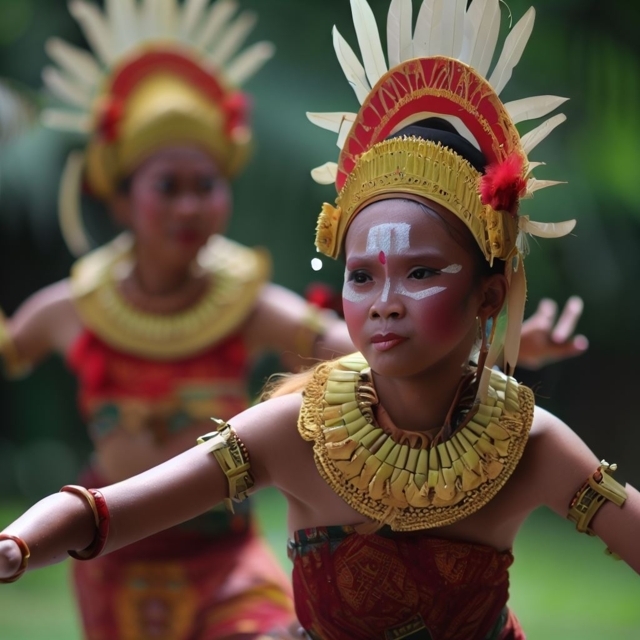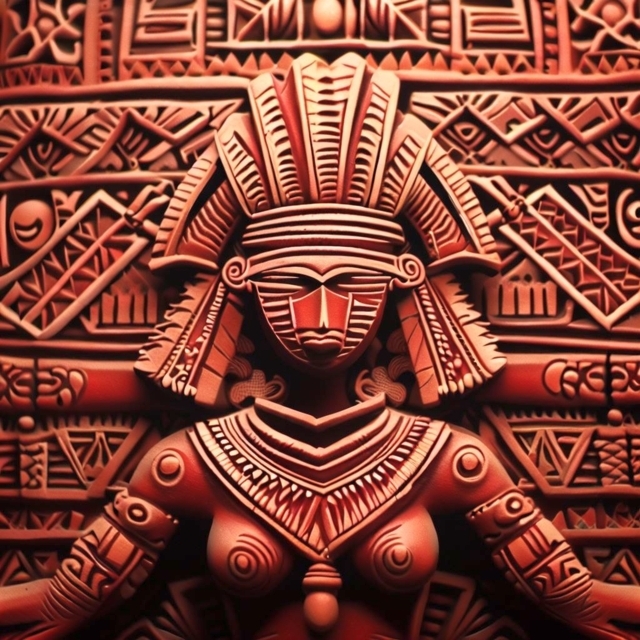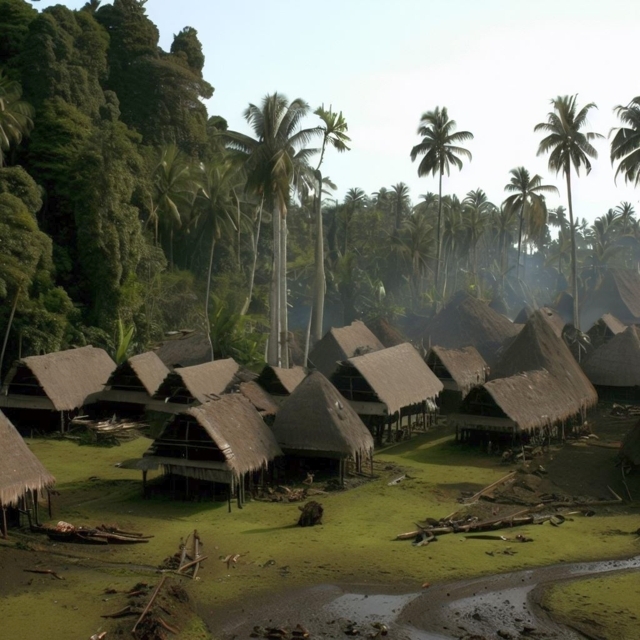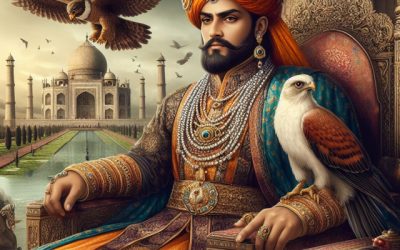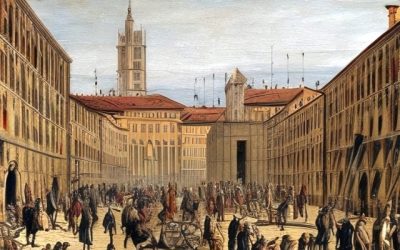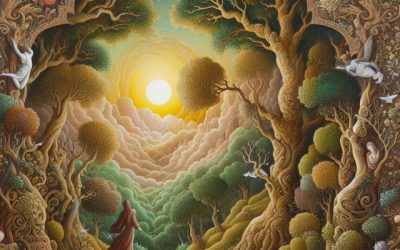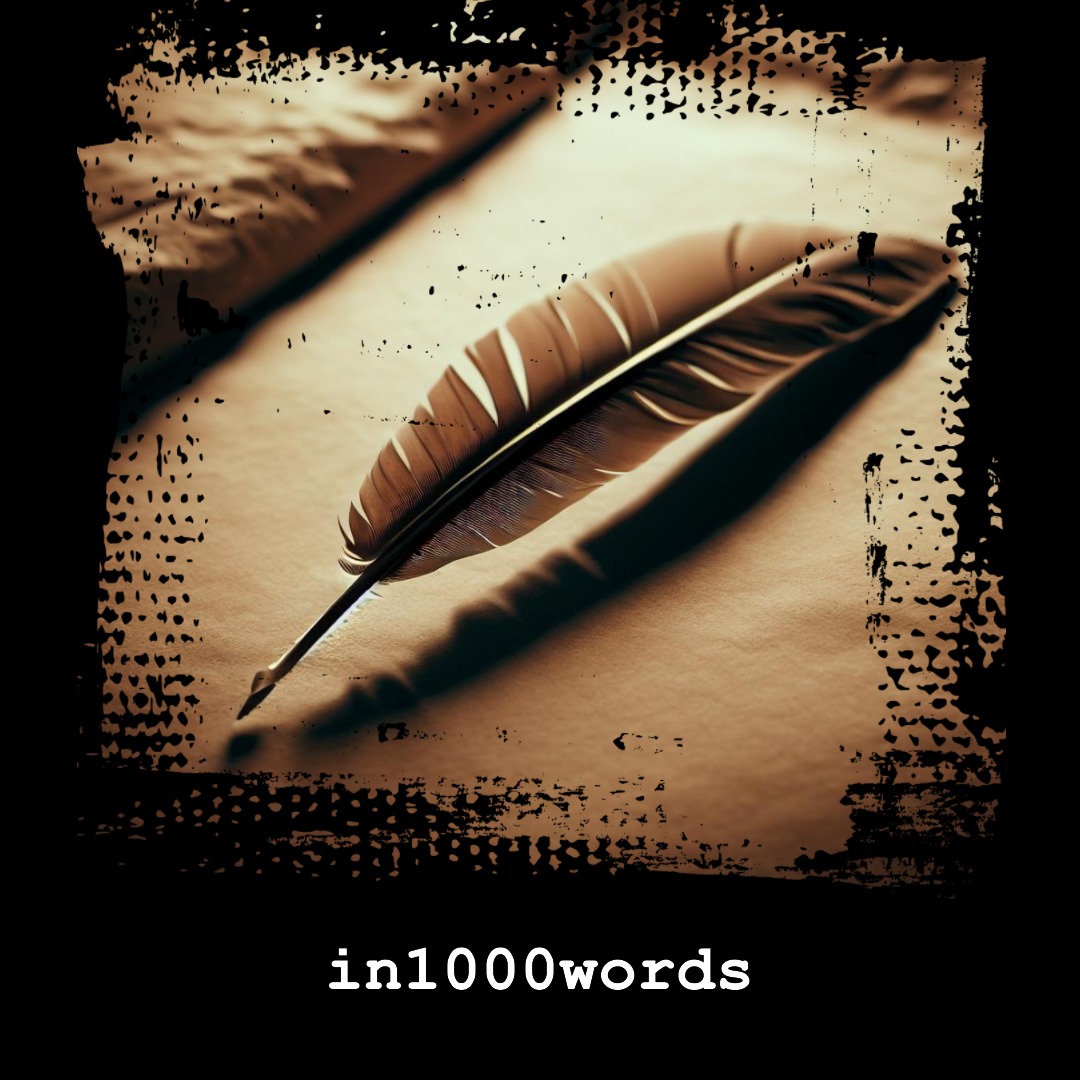New Caledonia, or Kanaky as it is known by its indigenous inhabitants, is a group of islands in the South Pacific Ocean, located east of Australia and west of Vanuatu. It is a special collectivity of France, with a high degree of autonomy and a unique cultural identity. The Kanaks are the original Melanesian people of New Caledonia, who have lived there for at least 3,000 years. They make up about 41% of the population, or around 112,000 people, according to the 2019 census¹. The Kanaks have a rich and diverse culture, based on their ancestral traditions, their connection to the land and the sea, and their resistance to colonialism and assimilation. In this blog post, I will give a brief overview of the history, society, and culture of the Kanak people, and highlight some of the challenges and opportunities they face in the present and the future.
History
The Kanaks are descended from the Lapita people, who migrated from Southeast Asia to Oceania around 1500 BC. They settled in New Caledonia around 1000 BC, and developed a complex society based on clans, chiefdoms, and alliances. They also developed distinctive arts and crafts, such as pottery, carving, weaving, and tattooing. The Kanaks had contact with other Pacific islanders, such as Polynesians and Micronesians, who influenced their culture and language.
The first European contact with New Caledonia was in 1774, when British explorer James Cook sighted the main island and named it after Scotland. However, it was not until 1853 that France claimed New Caledonia as a colony, following a request from a Catholic missionary. France soon established a penal colony on the island, sending thousands of convicts and political prisoners from France and Algeria. The French also exploited the natural resources of New Caledonia, such as nickel, copper, gold, and timber.
The colonization had a devastating impact on the Kanaks, who suffered from diseases, land dispossession, forced labour, cultural suppression, and violence. The Kanaks resisted the colonial rule in several uprisings, such as the 1878 rebellion led by Chief Ataï, which was brutally crushed by the French army. The Kanaks were also discriminated against by the French administration and settlers, who denied them citizenship rights and access to education and health care.
The Kanaks participated in both World Wars as soldiers in the French army, hoping to gain recognition and equality. However, after the wars, they faced more oppression and marginalization from the French state and society. In 1946, New Caledonia became an overseas territory of France, with limited autonomy and representation. The Kanaks were granted French citizenship but remained second-class citizens.
Modern Times
In the 1950s and 1960s, the Kanak nationalist movement emerged as a response to the increasing immigration of Europeans (mainly French) to New Caledonia. The movement demanded independence from France and recognition of the Kanak identity and sovereignty. The movement was inspired by other anti-colonial struggles in Africa and Asia, as well as by the civil rights movement in the United States. The movement also sought to revive the Kanak culture and language, which had been suppressed by the French assimilation policy.
In 1977, the movement formed a political party called the Kanak Socialist National Liberation Front (FLNKS), led by Jean-Marie Tjibaou. The FLNKS boycotted the elections and declared a provisional government in 1984. This sparked a violent conflict between the FLNKS and the French loyalists (supported by France), which lasted until 1988. The conflict resulted in hundreds of deaths and injuries on both sides.
In 1988, the Matignon Accords were signed between France and New Caledonia to end the conflict and pave the way for a referendum on independence. The accords also recognized the Kanak identity as an essential component of New Caledonian society. In 1998,
the Nouméa Accord was signed to further define the political status of New Caledonia within France. The accord granted more autonomy to New Caledonia and established a gradual transfer of powers from France to New Caledonia until 2018. The accord also stipulated that a referendum on independence would be held between 2018 and 2022.
Referendums
In 2018, the first referendum on independence was held in New Caledonia. The result was 56.4% against independence and 43.6% for independence1. The turnout was high at 80.6%. The referendum showed a clear divide between the Kanaks (who mostly voted for independence) and the Europeans (who mostly voted against independence). However, the referendum also showed a willingness to dialogue and coexist peacefully among the different communities. The Nouméa Accord allowed for two more referendums to be held in 2020 and 2021, if requested by a third of the members of the New Caledonian Congress.
In 2020, the second referendum on independence was held in New Caledonia. The result was 53.3% against independence and 46.7% for independence2. The turnout was slightly higher than in 2018, at 85.7%. The referendum showed a slight increase in support for independence, especially among young voters and urban dwellers. The referendum also showed a continued commitment to peace and democracy among the different communities. The Nouméa Accord permitted one final referendum to be held in 2021, if requested by a third of the members of the New Caledonian Congress.
In 2021, the third and final referendum on independence was held in New Caledonia. The result was 96.5% against independence and 3.5% for independence. The turnout was very low, at 43.9%. The referendum took place amid a boycott from the indigenous Kanak population, whose leaders had called for the vote to be postponed following a large-scale COVID-19 outbreak that began in September 2021 and caused a total of 280 deaths. Emphasizing that the outbreak had declined significantly by mid-November, anti-independence campaigners accused independence supporters of using the pandemic to justify postponing a referendum they were fearful of losing, as it had cast the role of France in a good light following its dispatching of doctors and vaccine doses as well as injecting ten billion CFP francs into the local economy. Fearing unrest, the French government deployed 2,000 military personnel to New Caledonia for the vote, which ended up being carried out peacefully. French President Emmanuel Macron celebrated the results of the referendum, adding that France “is more beautiful because New Caledonia has decided to stay part of it.” Independence supporters called for participation in post-referendum discussion on the future status of New Caledonia. However, they refused to do so before the end of the French presidential election of April 2022.
Society
The Kanak society is organized around clans, which are groups of people who share a common ancestor and a common territory. Each clan has a name, a symbol, a totem, and a taboo. The clans are divided into two categories: the land clans (who own and cultivate the land) and the sea clans (who fish and trade). The clans are also divided into lineages, which are smaller groups of people who live together in a village or a tribe. Each lineage has a chief, who represents the lineage in the clan council. The clan council is the highest authority in the clan, and it decides on matters such as land use, marriage, justice, and rituals.
The Kanaks have a matrilineal system, which means that descent and inheritance are traced through the mother’s line. However, this does not mean that women have more power than men in the society. The Kanak society is still patriarchal, and men have more authority and responsibility than women in the public sphere. Women have more influence and autonomy in the domestic sphere, where they manage the household and raise the children. Women also play an important role in maintaining the social harmony and cohesion within the clan.
The Kanaks have a strong sense of solidarity and reciprocity among their clan members. They practice collective work, mutual aid, and gift exchange. They also have a complex system of customary law, which regulates their social relations and conflicts. The customary law is based on oral tradition, ancestral wisdom, and respect for nature. The customary law is enforced by the chiefs and elders of the clans, who act as mediators and judges. The customary law is also recognized by the French state as part of the New Caledonian legal system.
Culture
The Kanak culture is rich and diverse, reflecting their long history, their adaptation to their environment, and their interaction with other cultures. The Kanak culture is expressed through various forms of art, such as carving, weaving, painting, pottery, tattooing, and jewellery making. The Kanaks use natural materials such as wood, stone, shell, bone, fibre, clay, and pigment to create their artworks. Their artworks often have symbolic meanings and functions related to their clan identity, their spirituality, their social status, and their rituals.
One of the most distinctive features of the Kanak culture is the flèche faîtière (ridgepole arrow), which is a wooden sculpture that tops the roof of a traditional hut or a ceremonial house. The flèche faîtière represents the clan’s totem animal or plant, as well as its ancestors and spirits. The flèche faîtière is also a sign of prestige and authority for the chief or the lineage who owns it.
Another important aspect of the Kanak culture is music, dance, and singing, which are part of many ceremonies and celebrations. The Kanaks use various musical instruments, such as drums, flutes, conch shells and rattles to create rhythmic and melodic sounds. They also use vocal techniques, such as polyphony and yodelling, to create harmonious and expressive songs. The Kanaks perform dances that reflect their emotions, their stories, and their values. They wear colourful costumes and adornments that enhance their movements and their beauty.
The Kanak culture is also influenced by Christianity, which was introduced by missionaries in the 19th century. Many Kanaks converted to Christianity, mostly to Protestantism or Catholicism, but they also retained some of their traditional beliefs and practices. The Kanaks have developed a syncretic form of Christianity, which incorporates elements of their ancestral spirituality and cosmology. For example, they believe in one supreme God, but they also believe in many spirits that inhabit nature and ancestors. They also celebrate Christian festivals, such as Christmas and Easter, but they also celebrate customary festivals, such as yam harvests and clan gatherings.
Challenges
The Kanak people face many challenges in preserving their culture and identity in the modern world. Some of these challenges are:
– Colonialism: The Kanaks have suffered from centuries of colonial oppression and exploitation by France and other foreign powers. They have been deprived of their land, their resources, their rights, and their dignity. They have been subjected to violence, discrimination, assimilation, and marginalization. They have been denied their political sovereignty and self-determination.
– Globalization: The Kanaks have been exposed to global influences that threaten their cultural diversity and authenticity. They have been influenced by Western values, lifestyles, and consumerism. They have been affected by environmental degradation, climate change, and natural disasters.
– Education: The Kanaks have limited access to quality education and training, especially in rural areas and remote islands. They face language barriers, as most of the education system is based on French, while many Kanaks speak their own languages or dialects. They also face cultural barriers, as the curriculum does not reflect their history, culture, and aspirations. They have low literacy rates, high dropout rates, and low enrolment rates in higher education.
– Health: The Kanaks have poor health conditions and outcomes, compared to other groups in New Caledonia. They suffer from high rates of chronic diseases, such as diabetes, hypertension, and obesity. They also suffer from infectious diseases, such as tuberculosis, leprosy, and dengue fever. They have low life expectancy, high infant mortality, and high maternal mortality. They have limited access to health care services and facilities, especially in rural areas and remote islands.
– Economy: The Kanaks have low economic status and opportunities, compared to other groups in New Caledonia. They have high rates of unemployment, poverty, and inequality. They have low participation in the formal sector, especially in the mining and tourism industries. They have limited access to land, credit, markets, and technology. They have low income, low savings, and low assets.
Opportunities
Despite these challenges, the Kanak people also have many opportunities to preserve their culture and identity in the modern world. Some of these opportunities are:
– Independence: The Kanaks have the opportunity to decide their political future through the referendums on independence that are being held between 2018 and 2022. The referendums are a historic chance for the Kanaks to express their will and achieve their long-awaited sovereignty and self-determination. The referendums are also a chance for dialogue and reconciliation among the different communities in New Caledonia.
– Autonomy: The Kanaks have the opportunity to exercise more autonomy and control over their affairs through the Nouméa Accord, which grants more powers and responsibilities to the New Caledonian institutions. The Nouméa Accord also recognizes the Kanak identity as an essential component of New Caledonian society, and guarantees the protection and promotion of their rights, culture, and language.
– Culture: The Kanaks have the opportunity to revitalize and celebrate their culture through various forms of art, music, dance, and literature. The Kanaks have a vibrant cultural scene, with many artists, musicians, dancers, and writers who express their creativity and identity through their works. The Kanaks also have a rich cultural heritage, with many sites, monuments, and museums that showcase their history, traditions, and values.
– Education: The Kanaks have the opportunity to improve their education and training through various initiatives and programs that aim to increase their access, quality, and relevance. The Kanaks have access to bilingual education, which allows them to learn both French and their own languages. They also have access to intercultural education, which allows them to learn about their own culture
and other cultures. They also have access to vocational education, which allows them to acquire skills and qualifications for the labour market.
– Health: The Kanaks have the opportunity to improve their health and well-being through various initiatives and programs that aim to prevent, treat, and manage their health issues. The Kanaks have access to primary health care services, which provide basic health care needs such as immunization, family planning, nutrition, and sanitation.
They also have access to secondary health care services, which provide specialized health care needs such as surgery, dentistry, ophthalmology, and psychiatry. They also have access to traditional medicine, which provides alternative health care options based on natural remedies and practices.
– Economy: The Kanaks have the opportunity to improve their economy and livelihoods through various initiatives and programs that aim to increase their income, employment, and entrepreneurship. The Kanaks have access to land reform programs, which provide them with land titles and leases for agricultural purposes. They also have access to microfinance programs, which provide them with loans and savings for business purposes. They also have access to cooperatives programs, which provide them with collective ownership and management of resources and enterprises.
Conclusion
The Kanak people are the indigenous people of New Caledonia, who have a rich and diverse culture and identity. They have a long history of resistance and resilience against colonialism and globalization. They have many challenges and opportunities in preserving their culture and identity in the modern world. They have the right and the responsibility to decide their political future and their cultural destiny. The Kanak people have expressed their desire for independence from France in three referendums held between 2018 and 2021. The first two referendums showed a gradual increase in support for independence, especially among young voters and urban dwellers. However, the third referendum was boycotted by the Kanak population, who were mourning the victims of a COVID-19 outbreak that had disproportionately affected them. The boycott resulted in a very low turnout and a very high rejection of independence.
The outcome of the third referendum has raised questions about its legitimacy and validity, as well as about the future of New Caledonia within France. The French government has welcomed the result as a confirmation of the attachment of New Caledonians to France, but has also acknowledged the need for dialogue and transition. The Kanak leaders have rejected the result as illegitimate and irrelevant, but have also called for participation in post-referendum discussions on the future status of New Caledonia.
The post-referendum discussions will be crucial for finding a common ground and a shared vision among the different communities in New Caledonia. The discussions will also be influenced by the outcome of the French presidential election that was held in 2022, which may affect the political orientation and the willingness of France to accommodate the aspirations of New Caledonia. According to the web search results, the French presidential election was won by Emmanuel Macron, who defeated Marine Le Pen in the second round with 58.6% of the vote. Macron, who had supported the Nouméa Accord and the referendums on independence, pledged to continue the dialogue and the transition process with New Caledonia. Le Pen, who had opposed the Nouméa Accord and advocated for a strong and centralized France, conceded defeat and called for national unity.
The Kanak people have shown their determination and their diversity in their quest for independence. They have also shown their openness and their tolerance in their coexistence with other cultures. They have a unique opportunity to shape their own destiny and to contribute to the development of New Caledonia and the Pacific region. They have a valuable heritage and a vibrant future to share with the world.
References
– Kanak people – Wikipedia. https://en.wikipedia.org/wiki/Kanak_people
– Kanak Culture, New Caledonia | New Caledonia Tourism. https://www.newcaledonia.travel/nz/culture-arts/local-culture/kanak-culture
– Kanaks of New Caledonia – World Directory of Minorities – FAQs. http://www.faqs.org/minorities/Oceania/Kanaks-of-New-Caledonia.html
– Kanak (New Caledonian people) – LC Linked Data Service. https://id.loc.gov/authorities/subjects/sh85071444.html
– 2021 New Caledonian independence referendum – Wikipedia. https://en.wikipedia.org/wiki/2021_New_Caledonian_independence_referendum
– New Caledonia rejects independence in final vote amid boycott – CNN. https://www.cnn.com/2021/12/12/europe/new-caledonia-independence-vote-intl-hnk/index.html
– New Caledonia referendum: South Pacific territory rejects independence …. https://www.bbc.co.uk/news/world-asia-54410059
– Macron in New Caledonia: why is the territory divided and will it break …. https://www.theguardian.com/world/2023/jul/24/emmanuel-macron-new-caledonia-trip-will-it-break-away-independence-referendum
– New Caledonia rejects independence from France for second time. https://www.theguardian.com/world/2020/oct/04/new-caledonia-rejects-independence-from-france-for-second-time
– 2022 French presidential election – Wikipedia. https://en.wikipedia.org/wiki/2022_French_presidential_election
– French election 2022: full second round results | French presidential …. https://www.theguardian.com/world/ng-interactive/2022/apr/24/french-election-2022-live-results-projection-second-round-emmanuel-macron-marine-le-pen
– French election results: Emmanuel Macron wins | CNN. https://www.cnn.com/2022/04/24/europe/french-election-results-macron-le-pen-intl/index.html
– As it happened: Macron beats far-right rival Le Pen to win second term. https://www.france24.com/en/france/20220424-live-follow-the-results-of-france-s-presidential-election-run-off
– Leenhardt, M. (1976). Do Kamo: La personne et le mythe dans le monde mélanésien. Paris: Gallimard. https://www.persee.fr/doc/rhr_0035-1423_1950_num_137_1_5705
Bibliography
– Shineberg, D. (1999). The people trade: Pacific island laborers and New Caledonia, 1865-1930. Honolulu: University of Hawai’i Press.
– Angleviel, F. (2006). Histoire de la Nouvelle-Calédonie: Nouvelles approches, nouveaux objets. Paris: Les Indes savantes.
– Bensa, A., & Wittersheim, E. (2006). Les sciences humaines et sociales dans le Pacifique Sud: Terrains, questions et méthodes. Paris: L’Harmattan.
– Dauphiné, J., & Peyronnet, J. (2009). Nouvelle-Calédonie: Archipel de corail. Paris: Belin.
– Gorodey, D., & Sand, C. (2010). Kanak: L’art est une parole. Paris: Musée du quai Branly.
– Mrgudovic, N. (2008). La Nouvelle-Calédonie vers un destin commun? Paris: Karthala.
– Tjibaou, J.-M., & Baudoux, C.-A. (1996). La présence kanak. Paris: Odile Jacob.
Tags
Divi Meetup 2019, San Francisco
Related Articles
Unappreciated Greatness
Life and Legacy of Jahangir of the Mughal Empire. Jahangir ruled over one of the largest empires in human history during his lifetime, yet few people outside of South Asia have heard of him. I aim to shed light on the life and legacy of this remarkable figure,...
The Plague Doctor’s Diary
A Personal Account of the Turin Epidemic of 1656. I am writing this diary to record my experiences and observations as a plague doctor in Turin, the capital of the Duchy of Savoy, during the terrible epidemic that has afflicted this city and its surroundings since the...
The Timeless Beauty of Bustan
Unveiling the Secrets of Saadi Shirazi's Masterpiece.In the realm of Persian literature, few works have captured the essence of love, spirituality, and morality quite like Bustan (The Orchard) by Saadi Shirazi. This 13th-century masterpiece has left a lasting impact...
Stay Up to Date With The Latest News & Updates
Explore
Browse your topics of interest using our keyword list.
Join Our Newsletter
Sign-up to get an overview of our recent articles handpicked by our editors.
Follow Us
Follow our social media accounts to get instant notifications about our newly published articles.
